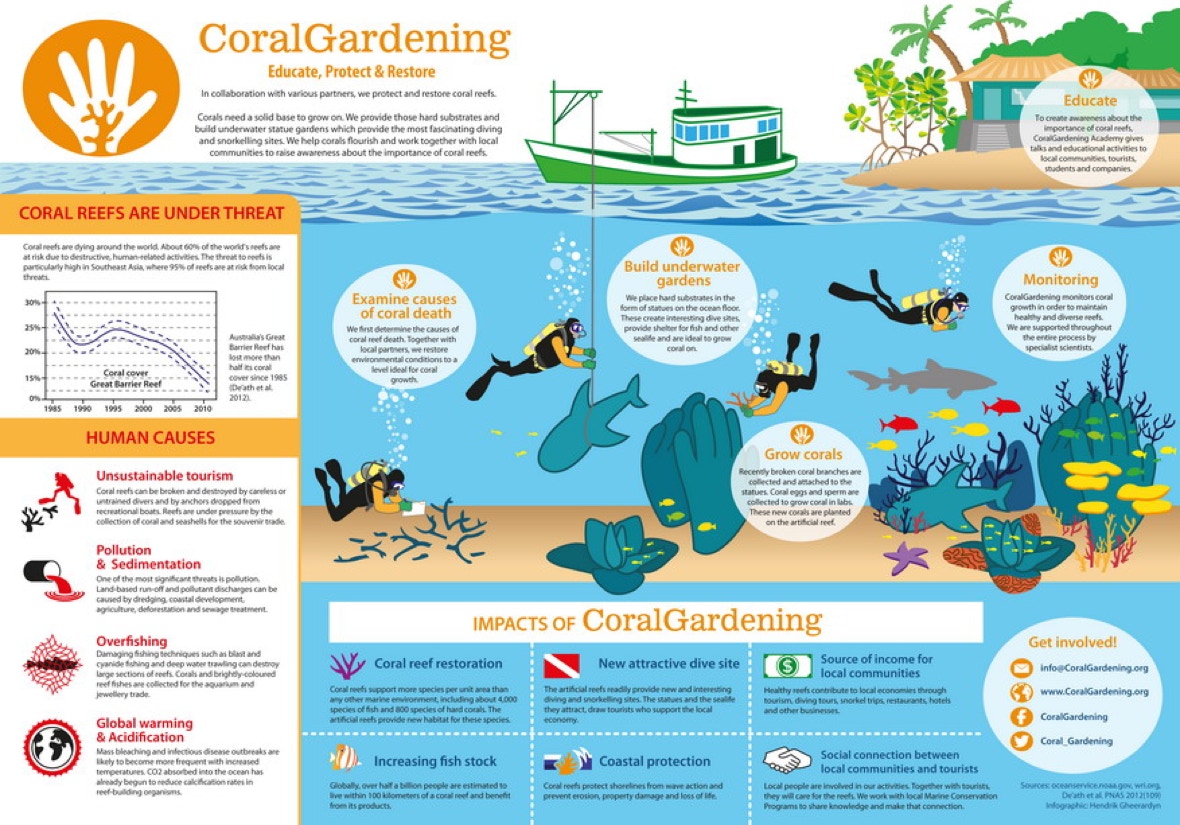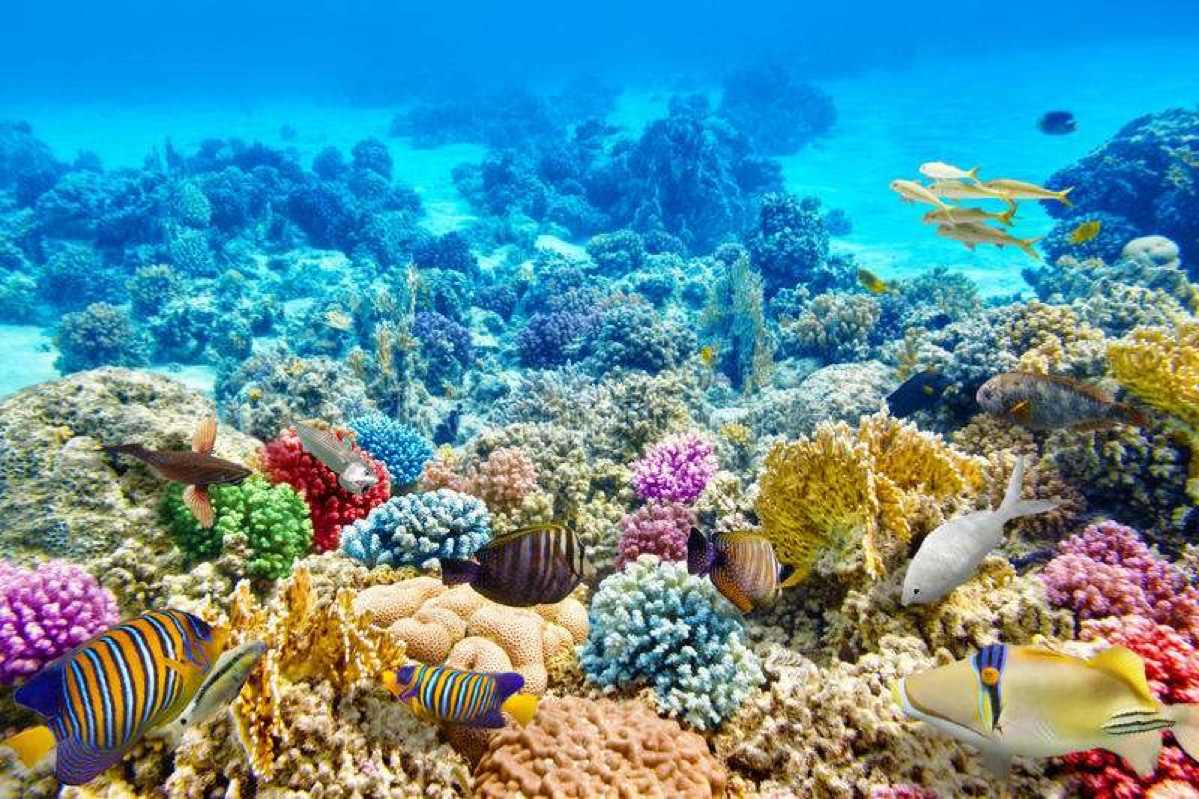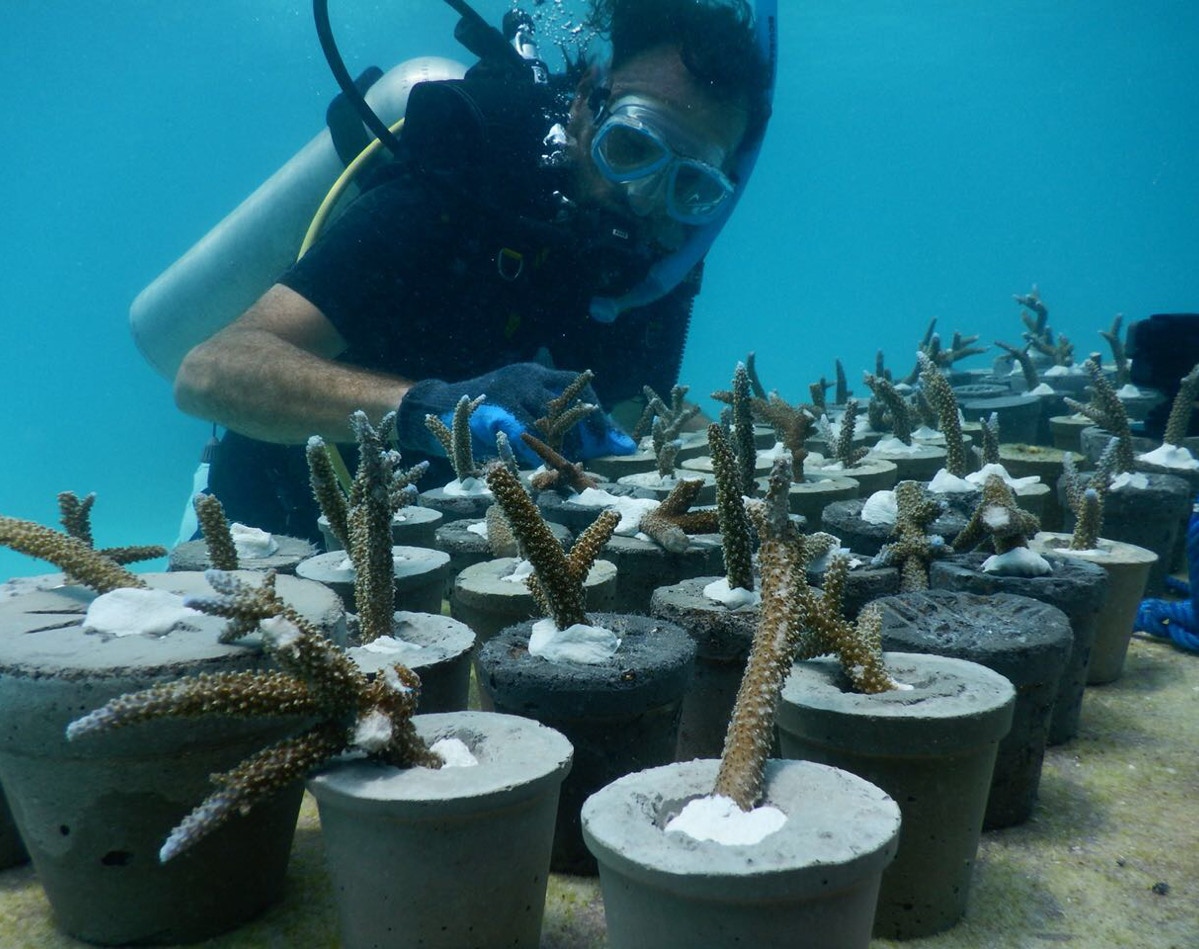REEF CONSERVATION
More than 50% of all species on Earth are found under the ocean. Scientists at NOAA estimate that the ocean produces 50-80% of the world’s oxygen and absorbs 50 times more carbon dioxide than land.
The ocean helps sustain human life.
Coral reefs are structures created by coral animals and are among the most biologically diverse ecosystems on the planet. They provide goods and services worth at least US$11.9 trillion per year and support (through such activities as fisheries and tourism) at least 500 million people worldwide.
Coral reefs are described as the tropical forests of the ocean. Providing shelter and spawning grounds to a wide range of ocean life, coral reefs serve an important role in the marine ecosystem. Living corals have many different colours, such as brown, purple and green, but this colour is actually the colour of microscopic single-celled algae called zooxanthellae living symbiotically inside the body of the coral. Corals provide a home for the zooxanthellae and in return, the zooxanthellae, provide oxygen from photosynthesis, and organic matter such as carbohydrates and protein which the corals use as nutrients. In part, the corals excrete this organic matter as a viscous liquid, providing nutrients for tiny creatures, and forming a base for the rich marine ecosystem.
There are other important roles played by coral and coral reefs as well. One is the regulation of carbon dioxide levels in the oceans. Carbon dioxide regulation is very essential and without the corals or coral reefs, there would be an imbalance of carbon dioxide levels that would severely impact all marine creatures. Another role is protection from strong ocean currents and high waves. As the name "barrier reef" implies, reefs act as a barrier protecting the shorelines.

Sculpture by Jason deCaires Taylor
Coral reefs, however, are being eliminated from the planet rapidly by climate change. In particular, increasing sea temperatures have already caused widespread coral bleaching and mortality. In addition, elevated carbon dioxide levels are causing ocean acidification that may further accelerate coral reef loss.
Over recent decades, worldwide, over 50% of living coral has been lost on coral reefs due to a combination of local factors and global climate change. In 2016-17 bleaching alone caused the loss of half the shallow water corals on the northern 700 km of the Great Barrier Reef and substantial damage elsewhere. Recovery from such events is a decades-long process.
With bleaching now frequent, reefs have little time to rebuild.
As a result of reef ecosystem destruction, a quarter of all marine species are at risk, while the associated economic losses will expose hundreds of millions of people to decreasing food security and increased poverty. Addressing the decline in coral reefs has never been more urgent.
Sculpture by Jason deCaires Taylor
AT DEEPBLUESEE OUR MISSION IS TO FIGHT THIS DECLINE
- We develop sustainable tourist attractions that generate revenue that is reinvested in reef conservation.
- We create new artificial reef environments relieving stresses on the natural reef.
- We work with local ocean conservation initiatives and global research programs to support the development of reef conservation science.
- We work with local schools and educational institutions to engage the local community with the preservation of their ocean resource.
Sculpture by Jason deCaires Taylor

